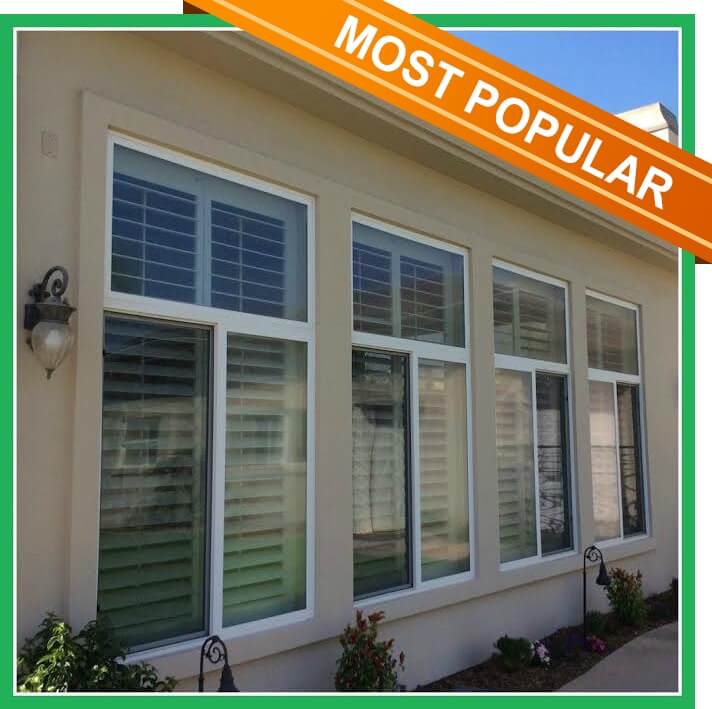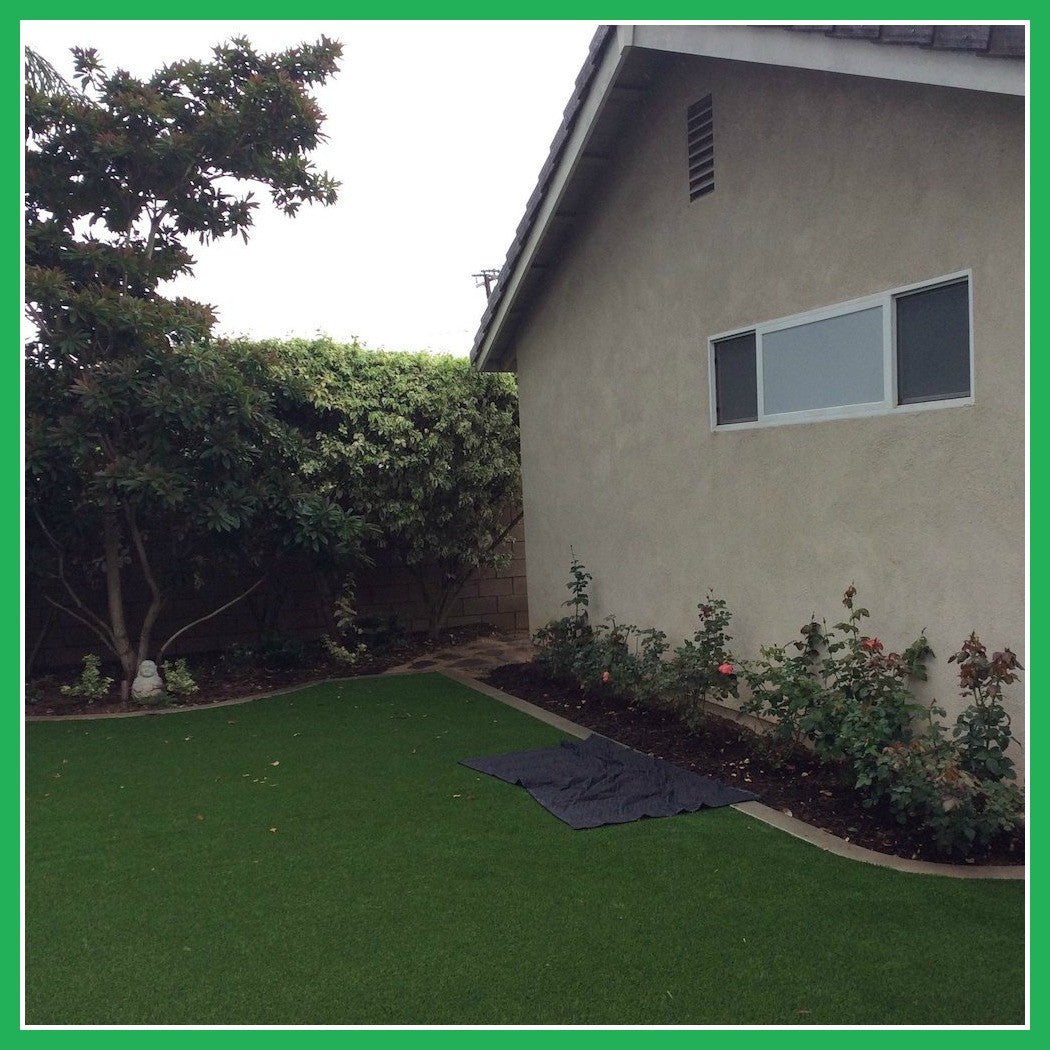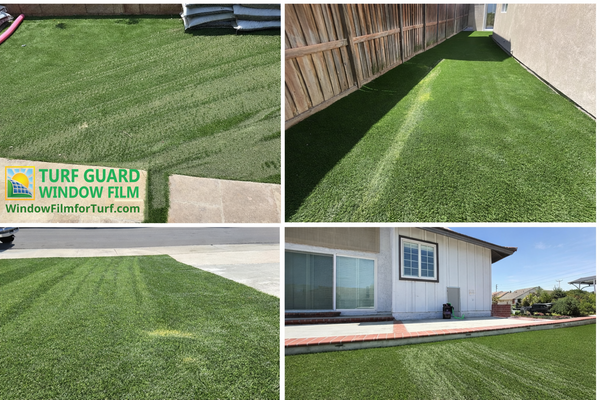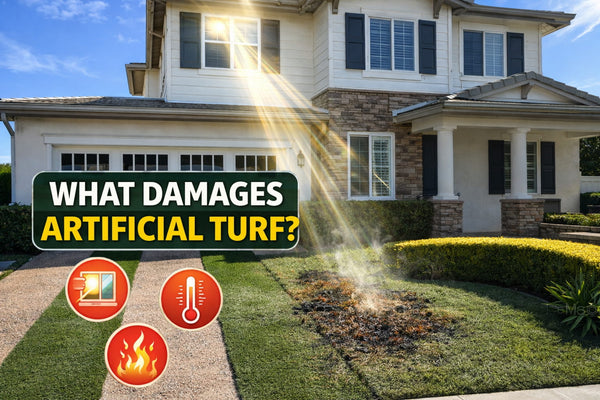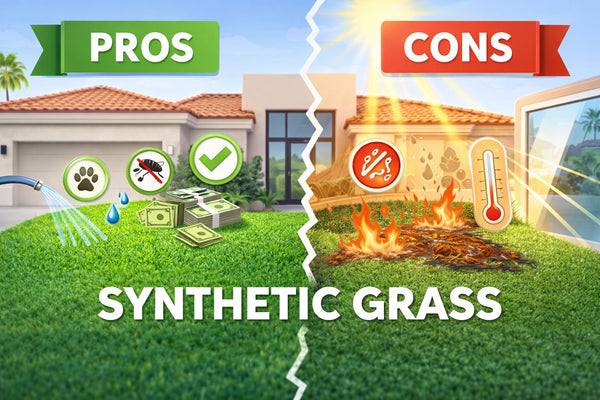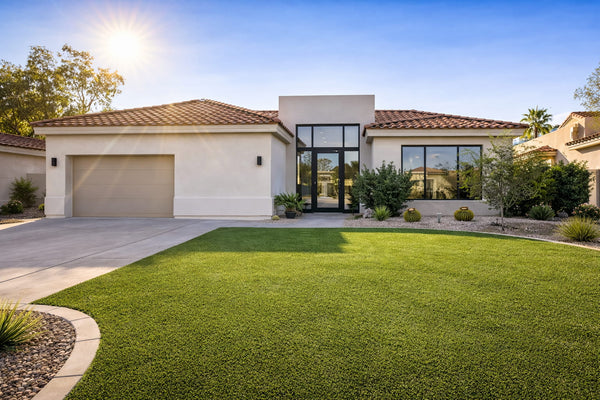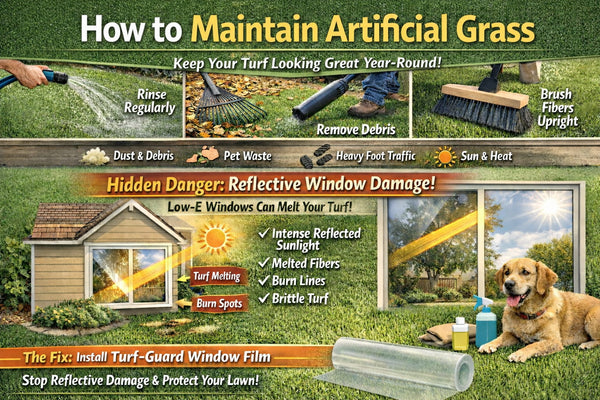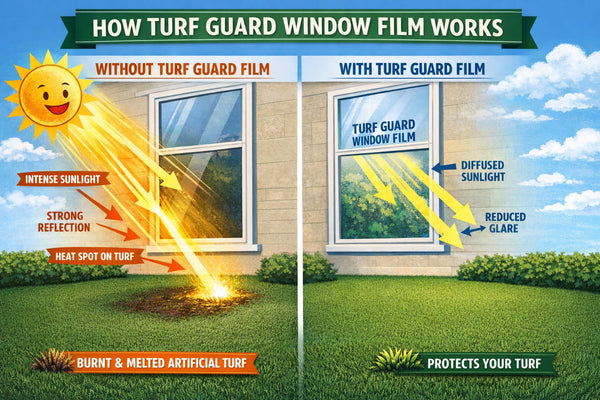Low emissivity, or low-e windows, are designed to have a highly reflective exterior that bounces maximum sunlight away from a property, keeping the home or business cooler inside and meaning reduced cooling expenses. But these energy efficient windows can lead to a costly issue if they cause melted vinyl siding. By concentrating the light that the reflective surface rejects into a hot beam, low-e windows can focus enough heat onto nearby surfaces to melt vinyl walls or damage artificial turf grass. Fortunately, anti glare window film can prevent this type of damage at a fraction of the cost of replacing damaged siding or artificial grass.
How to keep windows from melting siding
With Turf Guard Window Film applied on your energy efficient windows, you can rest assured that sunlight bouncing off the low-e windows won’t create a concentrated beam of light that can cause damage, and instead will be scattered in myriad directions and won’t affect siding, grass, plastic furniture, or any other surfaces or materials. This specialty window film can be applied in a matter of hours, and it will immediately remedy the issues caused by hot sunlight bouncing off low-e windows.
Block the glare not the view window film
People worry that anti reflective window tint will block the view out through their windows, but in fact it is almost optically clear. You will still enjoy a great view out through your windows once you have Turf Guard Window Film in place; what you won’t see is windows that are causing melting when sun glare hits the surfaces across from the windows.
Anti glare window film won’t affect window efficiency
Low-e windows keep your home cooler and mean a lower energy bill and a greener property, so you wouldn’t want to hamper their performance, even though stopping melted vinyl siding is highly important. The good news is that Turf Guard Window Film won’t reduce you’re a window’s heat reduction and UV-blocking qualities.

